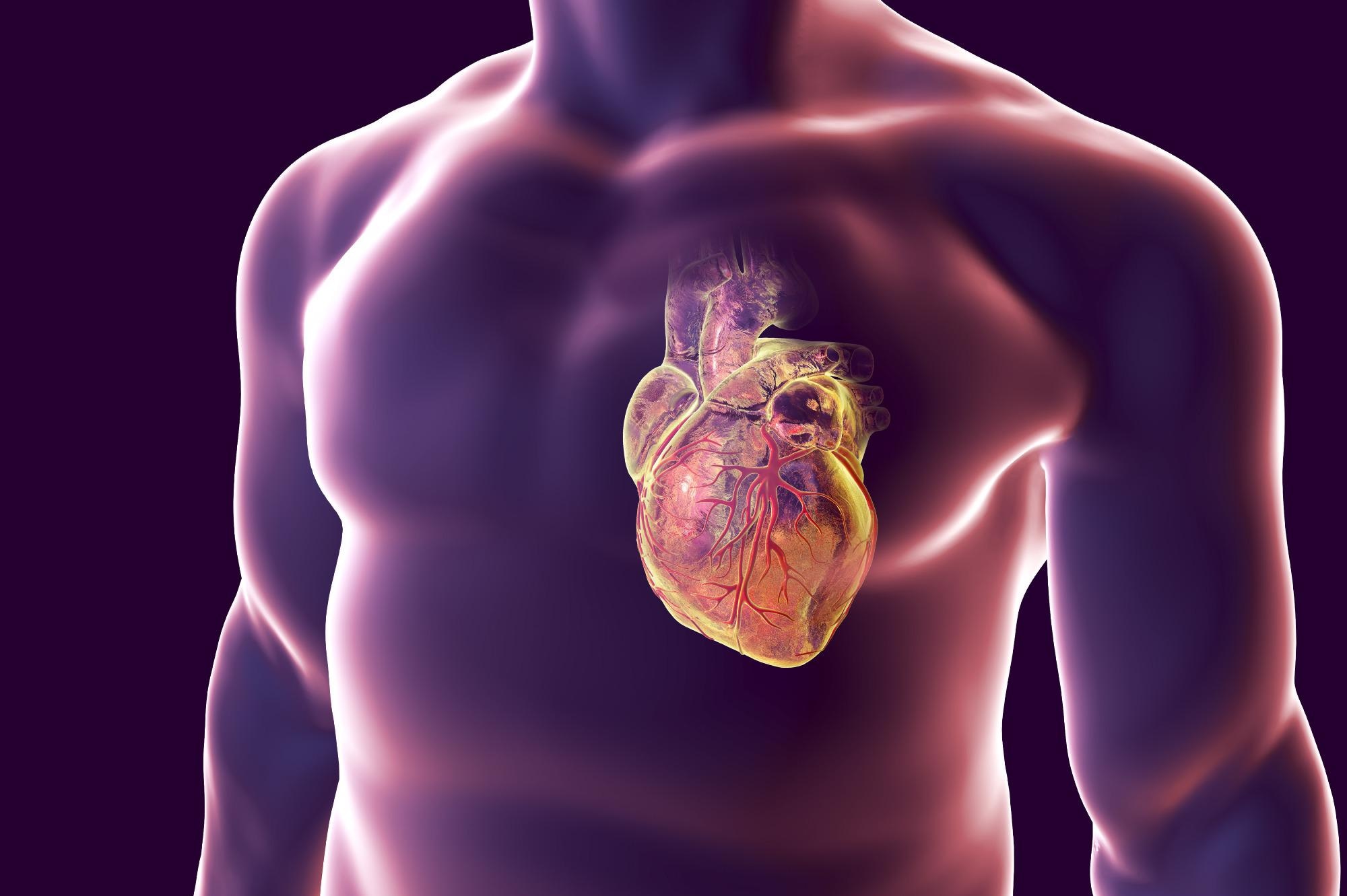
Image Credit: Shutterstock.com/Kateryna Kon
Clinical evaluation is challenging because of the extensively varying symptoms, from fatigue to shortness of breath, chest pain, palpitations, and, on the odd occasion, unexpected cardiac death, the latter related to sports activity.
Currently, cardiac magnetic resonance imaging (CMR) is typically conducted when physicians suspect myocarditis. In certain cases, the data acquired from these scans do not offer an adequately personalized risk assessment and corresponding ideal treatment options.
Review Study Points to New Approaches
In a scientific review in association with Harvard Medical School, the University of Tübingen, and the Bristol Heart Institute and, a research group headed by Prof. Christoph Gräni, MD, Ph.D., from Inselspital and the University of Bern measured numerous CMR parameters concerning their importance for prognosis, diagnosis and monitoring of myocarditis.
From the comparison of the different used diagnostic tools, we can derive novel approaches for future research and development. Next, we will determine how artificial intelligence (AI) can assist us in a rapid and comprehensive evaluation of the many different clinical parameters and image data. To this end, I am pleased that we have received funding from the Bern Center for Artificial Intelligence in Medicine (CAIM) to pursue this promising research direction.
Christoph Gräni, Study Lead, Inselspital Hospital, University of Bern
Making Complex Cardiac Function Data Readable with AI
Using CMR, over 1,000 measurements can be gathered from every patient, including parameters on tissue characterization of the heart muscle and pericardium (e.g., scars or inflammation), anatomy and heart muscle function data.
Yasaman Safarkhanlo, who is a physicist and Ph.D. student under the guidance of Prof. Gräni at Inselspital’s Department of Cardiology, explains: “Only AI can evaluate these many variables quickly in their entirety. We want to let the data speak to better understand what exactly happens during myocarditis. This is a novel approach that does not start from our previous understanding of physiology and looks for a known feature in the images.”
Yasaman Safarkhanlo continued, “With our project, we're rather starting from the data aspect to see what new correlations we discover on the images— so, ultimately, we can allow better treatment in the future.”
Personalized Counseling of Athletes
The objective of the researchers is to create assessment tools that can be used to establish whether myocarditis will heal sustainably and spontaneously or whether intensive care is required.
“Athletes in particular could be better advised in this way: On the one hand, the goal is to avoid sudden cardiac death, but on the other hand, to not unnecessarily restrict athletes in their activity,” Gräni explains.
In this regard, all image data and clinical data will, in the future, be sent into the Insel Gruppe's digital clinical information and control system, where they will be automatically assessed so as to give the attending physician a chance of diagnosis, an estimation of the progression of the disease and an ideal therapy suggestion.
Focus on Digitalization and AI Applications in Medicine
The Inselspital Department of Cardiology's commitment to using the newest digital technologies for tailored medicine is well-timed with the strategic digitalization projects at the University of Bern and the Insel Gruppe.
The Faculty of Medicine of the University of Bern is strongly committed to digitalization in medical education and research. With the establishment of the Center for Artificial Intelligence in Medicine (CAIM) the university and the Insel Guppe have created an excellent research platform.
Prof. Claudio Bassetti, MD, Dean of Faculty of Medicine, University of Bern
Prof. Claudio Bassetti is also the director and chief physician of the Department of Neurology at Inselspital.
It allows utilizing the latest developments in cutting-edge digital technology and artificial intelligence for personalized treatment approaches and to anchor this knowledge in education and training.
Prof. Claudio Bassetti, MD, Dean of Faculty of Medicine, University of Bern
CAIM Selects Myocarditis Project for Research Funding
During the first round of CAIM's research funding, the myocarditis project was nominated together with four others to receive CHF 100 000.
It is a tremendous asset to have clinicians from the Inselspital and technical scientists from the University working closely together here in Bern. By bringing dynamic and driven individuals to reach beyond their trained disciplines, the potential for innovation and its impact on our healthcare system is simply limitless.
Prof. Raphael Sznitman, Director, Center for Artificial Intelligence in Medicine, University of Bern
“This is at the core of CAIM and we are very excited to see such partnerships thrive and look forward to partnering with the Department of Cardiology at Inselspital,” Prof. Raphael Sznitman added.
Journal Reference:
Eichhorn, C., et al. (2022) Multiparametric Cardiovascular Magnetic Resonance Approach in Diagnosing, Monitoring, and Prognostication of Myocarditis. JACC: Cardiovascular Imaging. doi.org/10.1016/j.jcmg.2021.11.017.